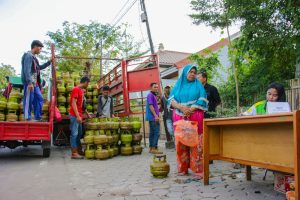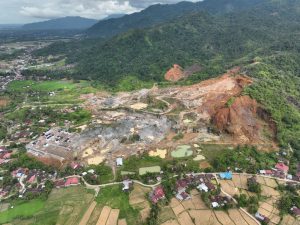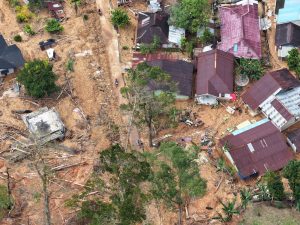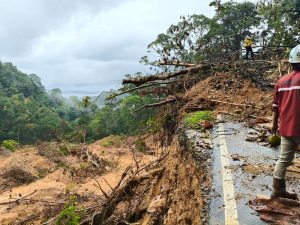Jakarta – Key governmental bodies have unified efforts to foster sustainability and traceability in the wood processing sector, officials said. The recent signing of a Cooperation Agreement (PKS) among the Coordinating Ministry for Maritime Affairs and Investment, the Ministry of Environment and Forestry, and the Ministry of Industry marks a significant step towards the digital transformation of Indonesia’s forestry sector.
Deputy Nani Hendiarti from the Coordinating Ministry for Maritime Affairs and Investment, along with Putu Juli Ardika, Director General of Agro-Industry, Ministry of Industry, and Agus Justianto, the Acting Director General of Sustainable Forest Management, Ministry of Environment and Forestry, formalised the agreement in Jakarta on Thursday, 14 December. This agreement facilitates the exchange and utilisation of data concerning wood raw materials and processed wood products, enhancing the interconnection of forest industry product information systems.

In a press statement, the Ministry of Industry said the Forestry Industry Product Information System Interconnection (SIPIK) launch underlines Indonesia’s commitment to synergising efforts in supporting the digital wood processing information system from the cradle to the grave. This initiative is vital for the processed wood, rattan, and bamboo industry, a sector known for its high-value products and substantial contribution to the national economy. In 2022 alone, as part of the agro-industry subsector, this industry contributed 4 per cent to the economy, with exports valued at USD 4.66 billion.
Deputy Nani Hendiarti, on the new system’s efficiency, as quoted by Antaranews Agency, said that “data and information on wood as raw material will only need to be inputted once upstream, eliminating the need for repetitive data entry at each stage.” This approach is expected to benefit downstream industry players significantly.
The agreement aims to strengthen institutional synergy in sharing and utilising data on wood raw materials and processed wood products. This initiative is a strategic move to ensure the traceability and availability of raw materials for the forestry industry, covering the entire supply chain from upstream to downstream. (nsh)















